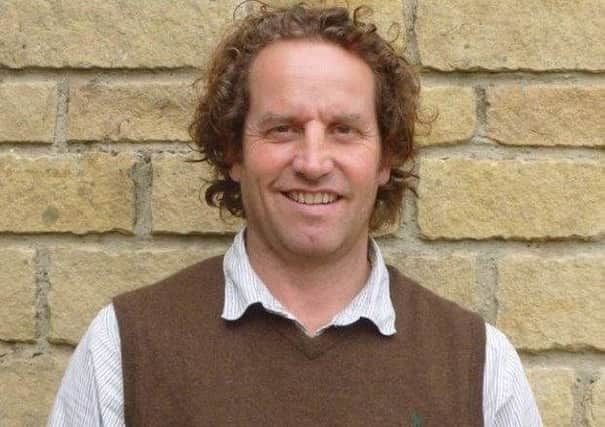Why farmers can't stand by and do nothing as Brexit looms


I’ve tried to put my farm – Hill Top in Malham – on as stable a financial footing as possible. During the past 15 years we’ve reduced both stock and inputs, and shifted to native cattle breeds. What I’ve learned is that production is not the key to profit. I think it is margins that count, not income.
Even so, I know that if all the payments went, I wouldn’t be able to make a living from the farm. I would not be alone. Almost any reduction in payments would result in some Dales farmers going out of business.
Advertisement
Hide AdAdvertisement
Hide AdNo-one can predict the extent of any such ruin, but we do know such an outcome would have disastrous consequences on the landscape, character and communities of the Yorkshire Dales National Park.
As a member of the Park Authority, I believe we have a moral obligation to address the issue. Livelihoods are at stake. The landscape as we know it is at stake.
It would be wrong to stand by and do nothing. That’s why we are making the case that it is paramount to maintain the total amount of money that is presently received by farmers in the Park.
But we need to accept – and even embrace – the fact that in future this money will be paid via schemes which can be more easily justified to the Treasury and to taxpayers. It’s important for the National Park and the farming community to work together to help design and deliver schemes that are applicable to the locality.
Advertisement
Hide AdAdvertisement
Hide AdAny scheme needs to be capable of providing measurable results, and be able to demonstrate tangible benefits and therefore value for money.
Two farming-related groups set up by the Park Authority, one internal and one external, have both recently identified that retaining the number of people working within the land management sector should be a priority.
We are under no illusions as to the difficulties associated with what could be an unrealistic ambition.
But again, it is a moral duty to recognise the pressures on farm holdings and seek to seize the opportunities presented by Brexit to try to alleviate them.
Advertisement
Hide AdAdvertisement
Hide AdI would like to see England’s upland National Parks become synonymous with ‘starter farms’. The uplands historically have been where farmers have started out.
Like the sheep, some farmers have then moved down to the lowlands.
I’d like to think that we can help design schemes that will attract young farmers to the uplands, and help to not just maintain but to increase the number of farm holdings.
Could post-Brexit policies enable farming families to remain in the Dales as integral parts of their communities? Could they give young people the encouragement to choose the land to make their living? Let’s hope so.
Neil Heseltine is a Malham farmer and Member of the Yorkshire Dales National Park Authority. He runs a 120-strong herd of Belted Galloways and 200 Swaledale sheep.